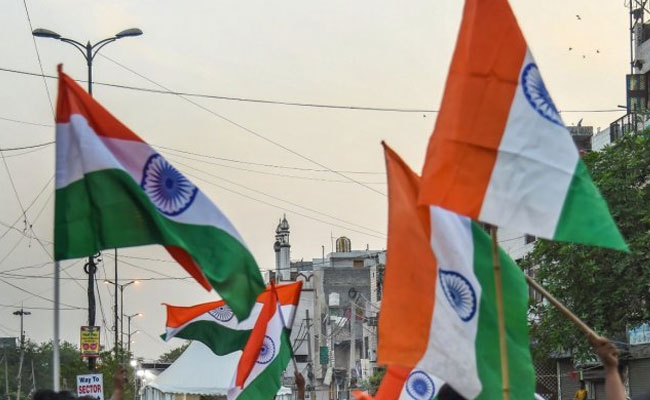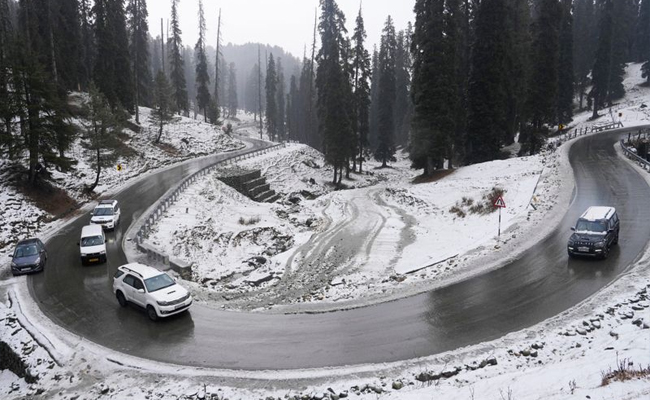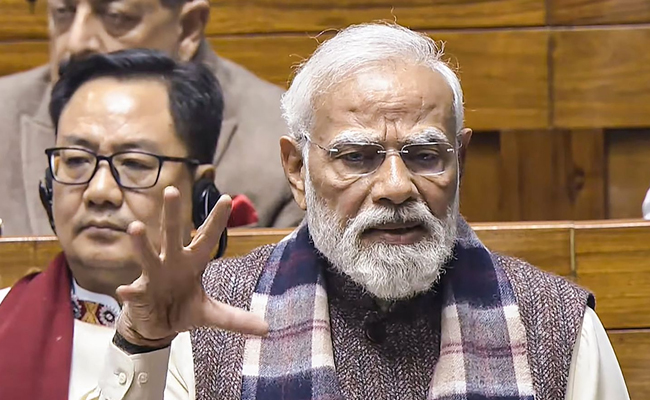Washington (PTI): A federal US commission has urged the Biden administration to impose targeted sanctions on Indian government agencies and officials responsible for "severe violations" of religious freedom in the country by freezing their assets.
The US Commission for International Religious Freedom (USCIRF) also recommended to Congress to raise the issue of religious freedom during US-India bilateral meetings and hold hearings on it.
In its annual report on religious freedom, the USCIRF asked the US State Department to designate India as a "country of particular concern" on the status of religious freedom along with several other nations.
The USCIRF has been making similar recommendations to the State Department since 2020, which have not been accepted.
The recommendations of USCIRF are not mandatory for the State Department.
India has previously slammed the USCIRF for "misrepresenting" facts. India has also described it as an "organisation of particular concern."
In July, in a strong reaction, the Ministry of External Affairs said that "These comments reflect a severe lack of understanding of India and its constitutional framework, its plurality and its democratic ethos."
"We have seen the biased and inaccurate comments on India by the US Commission on International Religious Freedom (USCIRF)," it said.
"Regrettably, USCIRF continues to misrepresent facts time and again in its statements and reports in pursuance of its motivated agenda. Such actions only serve to strengthen concerns about the credibility and objectivity of the organisation."
In its India section of the latest report, the USCIRF alleged that in 2022, religious freedom conditions in India continued to worsen.
Throughout the year, the Indian government at the national, state, and local levels promoted and enforced religiously discriminatory policies, including laws targeting religious conversion, interfaith relationships, the wearing of hijabs, and cow slaughter, which negatively impact Muslims, Christians, Sikhs, Dalits, and Adivasis.
"The national government also continued to suppress critical voices -- particularly religious minorities and those advocating on their behalf -- including through surveillance, harassment, demolition of property, and detention under the Unlawful Activities Prevention Act (UAPA) and by targeting nongovernmental organisations (NGOs) under the Foreign Contribution Regulation Act (FCRA)," the USCIRF alleged.
Responding to questions, State Department's Deputy Spokesperson Vedant Patel told reporters that USCIRF is not a branch of the State Department, or the Executive Branch and its report reflects the importance of religious freedom to the American people.
"While the report's recommendations for designations overlap to some extent with the State Department's lists of countries of particular concern, it is not entirely conclusive. Governments or other entities with questions or comments about this report should reach out to the Commission directly," Patel said on Monday.
US-based non-profit organisation, Foundation of Indian and Indian Diaspora Studies (FIIDS) slammed the USCIRF for its "biased" report.
"While the USCIRF is predictably attempting to revive its annual case against India for inclusion in the CPC, it does so with a weaker set of data points that are predictably filled with both omission and commission," Khanderao Kand of FIIDS said in a statement.
"It conveniently lists delays in court cases but conveniently omits the fact that the Assam High Court actually ordered the implementation of the NRC, not the government," Kand said.
Furthermore, the report fails to acknowledge the cultural and economic significance of cows to Indian villagers, not to mention the constitutional ban on cow slaughter.
It conveniently ignores the fact that the bulldozed houses were illegal and notified, and the list of omissions goes on. Astonishingly, the USCIRF fails to mention the beheadings of Hindus and their targeted killings by jihadi Muslims in Kashmir, he said.
"Moreover, there seems to be a biased agenda of USCIRF generalising isolated incidents without considering the complexities of India's diverse population of 1.3 billion people. It is clear that the USCIRF's renewed effort lacks the necessary objectivity and fairness, and it raises questions about their true intentions and credibility," Kand said.
The Indian American Muslim Council (IAMC) welcomed the USCIRF's decision to recommend that India be designated as a country of particular concern for the fourth consecutive year.
"This decision reaffirms what IMAC has been saying for years that India's government, under Prime Minister Narendra Modi, has continued to systematically violate the religious freedom of minority communities, particularly Muslims and Christians," said Rasheed Ahmed, IAMC executive director.
"It is high time that the State Department acts on USCIRF's recommendation and holds India accountable as the ground situation becomes increasingly more violent and dangerous for its religious minorities. We particularly welcome that the report highlights the systematic and appalling harassment of Journalists," Ahmed said.
Let the Truth be known. If you read VB and like VB, please be a VB Supporter and Help us deliver the Truth to one and all.
Rajouri/Jammu (PTI): Traffic on the Mughal and Sinthan Top roads, which provide alternate connectivity to Kashmir, was temporarily suspended on Sunday due to light to moderate snowfall in the high-altitude areas of Jammu and Kashmir, officials said.
However, traffic on the 270-kilometre Jammu-Srinagar national highway -- the only all weather road linking Kashmir with the rest of the country -- was plying as usual despite intermittent rains that ended the over one-and-a-half months long dry spell, they said.
ALSO READ: India overpowered by Minhas' big hundred and pacers as Pakistan clinch U19 Asia Cup
The Mughal road, which connects the twin border districts of Poonch and Rajouri with south Kashmir's Shopian, was closed for traffic as a precautionary measure after more than three inches of snow was recorded at Peer Ki Gali on Sunday afternoon.
A group of three tea vendors are left stranded on the road and efforts are on to evacuate them to safety, officials said.
After they were trapped in the snow, the vendors made passionate appeals through video messages urging the authorities to rescue them. The Border Roads Organisation has taken up snow clearance work and is trying to reach the stranded persons, officials said.
The Sinthan Top road, which connects Kishtwar and Doda districts in Jammu with south Kashmir's Anantnag, was also closed after moderate snowfall in the higher reaches.
Both the mountainous roads usually remain closed for several months due to heavy snowfall during winter.





